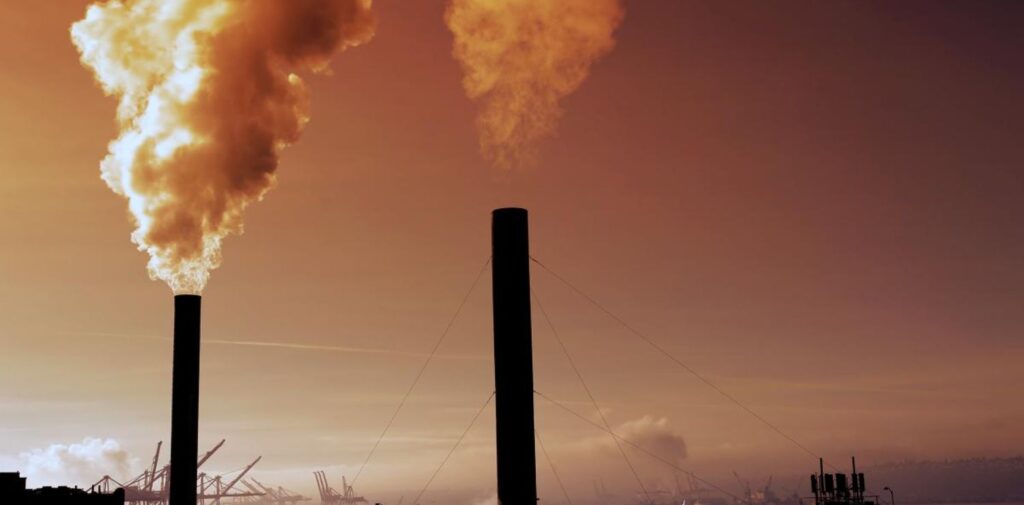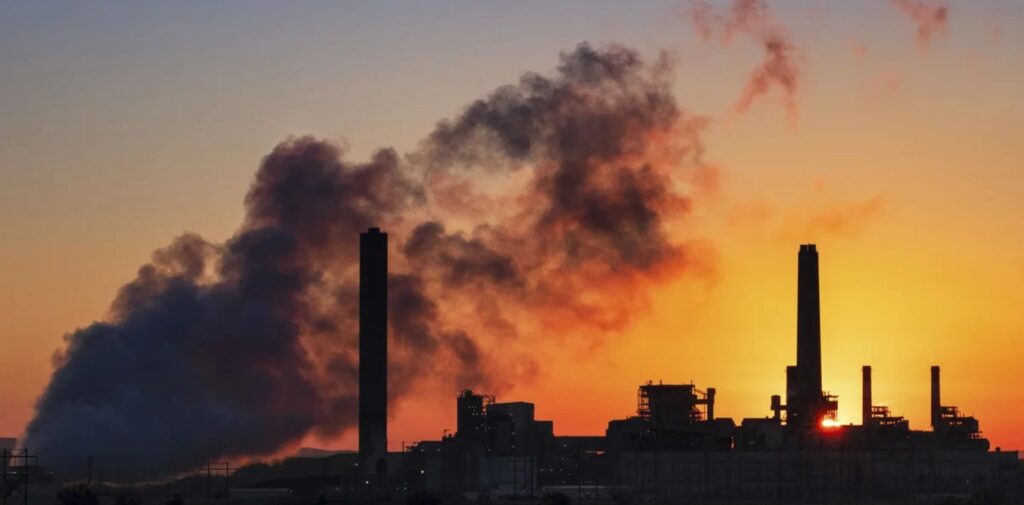Air pollution is one of the biggest problems facing India today. It is harming our environment, our health, and the future of our country. Cities like Delhi, Mumbai, and Kolkata are often covered in thick smog, and the air quality is so bad that it affects how we breathe and live. This article will help you understand what air pollution is, how it affects us, and what the government is doing to solve this problem. It will also look at how public awareness and our daily actions can help reduce pollution.

What is Air Pollution?
Air pollution happens when harmful substances, such as smoke, dust, and gases, mix with the air. These substances can come from cars, factories, burning of crops, construction activities, and even household products. When these harmful materials enter the air, they make it dirty and difficult to breathe.
In India, air pollution has become a huge concern, especially in big cities. People are exposed to air that contains dangerous particles and gases. Over time, this can lead to serious health problems, such as asthma, heart diseases, and even lung cancer. In addition to health problems, air pollution also harms our environment. It causes climate change, affects plants and animals, and contributes to global warming.
Why is Air Pollution a Problem in India?
India’s population is growing very fast, and so is the number of cars on the road. More cars mean more smoke and fumes released into the air. Factories and industries also contribute a lot to air pollution. They release harmful chemicals that pollute the air, and because there are so many factories in India, this is a major problem.
Another big problem is the burning of crop stubble, especially in states like Punjab and Haryana. After farmers harvest crops, they burn the leftover plants in the fields to clear the land for the next season. This causes a huge amount of smoke, which spreads across the air and makes it hard to breathe.
In addition, construction activities in cities also release dust and particles into the air. During the winter months, things get even worse. The weather becomes colder, and the air becomes still, trapping pollution close to the ground and making it harder for people to breathe.
The Effects of Air Pollution
Air pollution affects everyone—young and old, healthy and sick. The most obvious effect of air pollution is on our health. When we breathe in polluted air, it can cause problems in our lungs, heart, and other organs. Children, elderly people, and those with pre-existing health problems like asthma are more likely to be affected by air pollution.
Some of the common health problems caused by air pollution include:
- Asthma: Breathing in polluted air can make it difficult for people with asthma to breathe.
- Heart Disease: Long-term exposure to polluted air increases the risk of heart disease.
- Lung Diseases: Air pollution is a major cause of lung cancer and other respiratory diseases.
- Premature Deaths: Studies have shown that air pollution leads to early deaths, especially among people who live in heavily polluted areas.
Air pollution also harms the environment. It causes damage to crops, affects the growth of plants, and harms animals. It also contributes to global warming and climate change by increasing the levels of greenhouse gases in the atmosphere.

Government Policies to Fight Air Pollution
The Indian government has recognized the serious problem of air pollution and has put in place various policies and plans to tackle it. Some of these policies focus on improving air quality in big cities, while others aim to reduce pollution at the source.
- National Clean Air Programme (NCAP): In 2019, the Indian government launched the National Clean Air Programme (NCAP), which is a plan to improve air quality across the country. This program aims to reduce pollution by 20-30% by 2024 compared to the levels in 2017. The NCAP focuses on 102 cities with the highest levels of air pollution. It includes measures like improving public transportation, reducing emissions from industries, and encouraging the use of cleaner fuels.
- Graded Response Action Plan (GRAP): In cities like Delhi, the government has introduced the Graded Response Action Plan (GRAP) to deal with the serious air pollution during the winter months. GRAP is a set of emergency measures that are taken when the air quality becomes very poor. Some of the actions include:
- Stopping the construction of new buildings
- Banning the burning of crop stubble
- Banning the use of diesel-powered generators
- Limiting the use of vehicles by introducing odd-even schemes (where cars with odd and even numbers are allowed to drive on alternate days) These measures help reduce pollution in the short term and prevent the air from becoming even worse.
- Promoting Electric Vehicles (EVs): To reduce pollution from vehicles, the government has been encouraging the use of electric vehicles (EVs). EVs run on electricity, which does not produce harmful emissions like petrol or diesel-powered vehicles. The government has introduced incentives for people to buy electric cars and has also set up charging stations across the country.
- Regulations on Industries: Industries are one of the main contributors to air pollution in India. The government has set strict rules for industries to reduce their emissions and make their processes more environmentally friendly. For example, industries are required to use cleaner fuels, install air pollution control devices, and follow guidelines to reduce smoke and toxic gases.
- Awareness Campaigns: The government is also running awareness campaigns to educate people about the harmful effects of air pollution and how they can help reduce it. These campaigns focus on things like reducing vehicle emissions, using cleaner cooking methods, and planting trees to help absorb pollutants from the air.

Public Awareness and What We Can Do
While the government has a big role to play, the people of India also need to be aware of the problem and take action to help reduce air pollution. Awareness campaigns are an important part of this.
- Reducing Vehicle Emissions: One of the biggest sources of pollution in cities is the emission from vehicles. We can reduce pollution by using public transportation instead of private cars. Carpooling, cycling, and walking are other great ways to reduce pollution. If you have a vehicle, make sure it is well-maintained and does not emit excessive smoke.
- Planting Trees: Trees are natural air purifiers. They absorb carbon dioxide and release oxygen into the air. By planting trees in our surroundings, we can help reduce pollution and improve air quality. Schools, communities, and individuals can take part in tree plantation drives to create greener spaces.
- Using Cleaner Fuels: Another way to help reduce pollution is by using cleaner fuels for cooking and heating. In many parts of India, people still burn wood, coal, or crop residues for cooking. These fuels release harmful smoke into the air. Switching to cleaner alternatives like LPG (liquefied petroleum gas) or biogas can significantly reduce air pollution.
- Supporting the Ban on Burning Crop Stubble: Farmers often burn crop stubble to clear their fields, which contributes to a large portion of air pollution, especially in North India. We can support government policies that encourage farmers to use better methods to manage crop waste, like composting or using the waste for bioenergy.
- Being a Part of the Solution: We can all help reduce air pollution by being more conscious of our actions. Avoiding wasteful practices like burning plastic or other non-biodegradable items, using energy-efficient appliances, and reducing the use of chemicals can all make a difference. Educating others about the importance of clean air and getting involved in local environmental groups can also help raise awareness.
Conclusion
Air pollution is a serious issue in India, but with the right government policies and public awareness, it is possible to reduce its impact. The government’s efforts, such as the National Clean Air Programme and measures to promote electric vehicles, are helping to improve air quality. At the same time, we must all do our part to reduce pollution by using cleaner fuels, reducing vehicle emissions, planting trees, and raising awareness in our communities.
The future of India’s environment depends on all of us working together to fight air pollution and create a healthier, cleaner world for ourselves and future generations. Let’s take action now before it’s too late!




